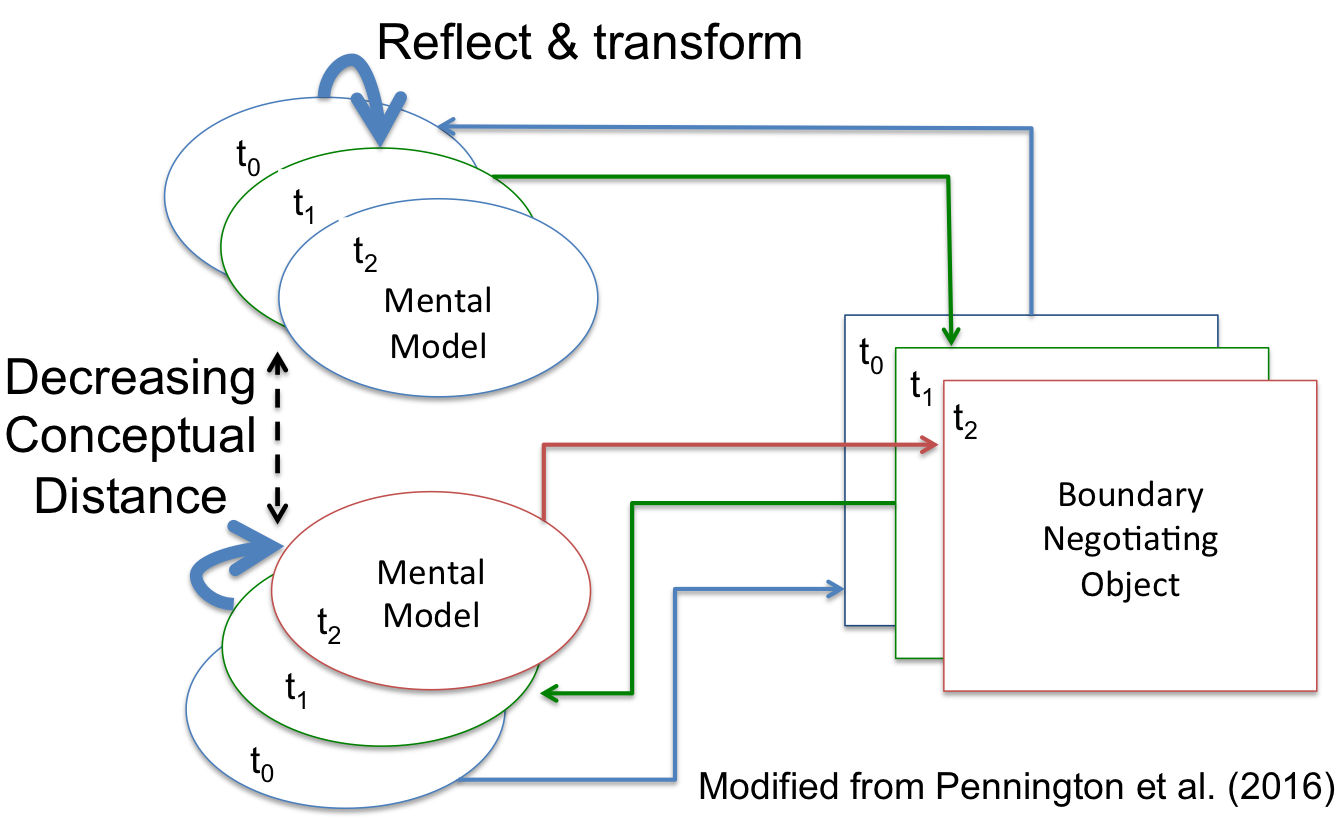


The EMBeRS Graduate Education Model draws on learning,
cognition,
and social
theories to develop and test model-based reasoning approaches to
integrative cross-disciplinary activities. We propose that model-based
reasoning ignites the 'embers' of the mind, lighting the fire
of interdisciplinary synthesis that leads to successful integrative
teamwork.
Model-based reasoning theory posits that humans reason
by constructing an internal mental model of the situations, events, and
processes that they encounter, and that external representations can be
used to facilitate construction of these mental models. External
representations include the use of analogies, metaphor, visual models,
diagrams and/or other representations for abstraction and communication
of complex concepts. In a team setting, these external representations
are called boundary negotiating objects. This project is creating new
approaches that place researchers/students from different disciplines in
multidisciplinary teams and facilitates a structured, participatory
process that includes a progression of individual and group
model-based reasoning activities, including
purposeful co-creation of boundary negotiating objects.
 The project
trains faculty from multiple institutions to use the model and works with them to
implement the approaches their courses. Survey, interview, and
digital data are collected to examine how graduate students respond. In
addition, doctoral students from multiple institutions learn together through
two-week summer experiences; students who are conducting research in
conjunction with larger interdisciplinary teams are targeted.
The project
trains faculty from multiple institutions to use the model and works with them to
implement the approaches their courses. Survey, interview, and
digital data are collected to examine how graduate students respond. In
addition, doctoral students from multiple institutions learn together through
two-week summer experiences; students who are conducting research in
conjunction with larger interdisciplinary teams are targeted.
The model includes includes: